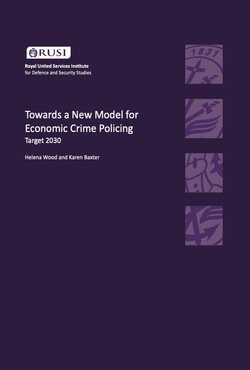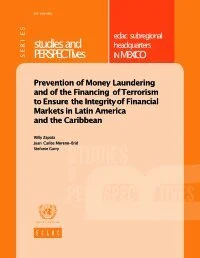By Europol
This report is the first of its kind to analyse in depth the characteristics that make criminal actors particularly threatening. Enhancing law enforcement’s understanding of their functioning and core capabilities will further strengthen the fight against serious and organised crime. It is essential as a complement to a commodity-based approach. Context: enhancing our understanding of criminal networks 1 Europol, 2021, European Union Serious and Organised Crime Threat Assessment, A corrupting influence: the infiltration and undermining of Europe’s economy and society by organised crime, Publications Office of the European Union, Luxembourg, accessible at https://www.europol.europa.eu/cms/ sites/default/files/documents/socta2021_1.pdf 2 Belgian presidency, Council of the European Union, Priorities, accessed on 8 February 2024, accessible at https://belgian-presidency.consilium.europa.eu/ en/programme/priorities/ 3 European Commission, Communication from the Commission to the European Parliament and the Council on the EU roadmap to fight drug trafficking and organised crime, COM/2023/641 final, 18 October 2023, accessible at https://eur-lex.europa.eu/legal-content/EN/TXT/?uri=CELEX%3A52023DC0641 Serious and organised crime is omnipresent and continues to represent a major threat to the internal security of the European Union (EU). In order to fight it effectively, law enforcement needs to understand the key areas where it should prioritise resources. The threat posed by organised crime is often assessed through the dimension of criminal markets and criminal activities. However, the picture is incomplete without analysing the capabilities and intent of its key players. One key approach is to focus on and address the most threatening criminal networks that affect the internal security of the EU. Understanding their critical strengths is paramount as these are the criminal networks that exert significant negative impact on the societies and economies of EU Member States. The EU Serious and Organised Crime Threat Assessment (SOCTA) 2021 brought the changing relationships between criminal actors into focus in an organised crime landscape that is characterised by a networked environment where cooperation between criminals is fluid, systematic and profit-driven.1 The concept ‘criminal network’ reflects the nature of the current criminal landscape, which is complex and includes a variety of criminal associations. Criminal networks involve collaboration between groups and individuals – groups of different organisational character, and individuals who are either embedded within a particular network or operate outside of it. This analysis brings to light the characteristics of those criminal networks that pose the highest threat to the EU’s internal security. The aim is to strenghten our understanding of criminal networks, in order to help policy makers and law enforcement make informed policy and operational decisions to tackle them. This report responds to several initiatives that highlight the need to enhance our understanding of what shapes the threat of criminal networks, including by the EU Justice and Home Affairs Ministers and the current Belgian Presidency of the EU Council.2 The results of the analysis will complement the commodity-based assessment of the EU SOCTA 2025 with a deeper criminal-actor focused analysis. It will also support the EMPACT Operational Action Plan on High-Risk Criminal Networks on developing a methodology to identify the most threatening criminal networks. It forms part of the EU roadmap to fight drug trafficking and organised crime under Action 4.
Publications Office of the European Union, Luxembourg.2024. 60p.




